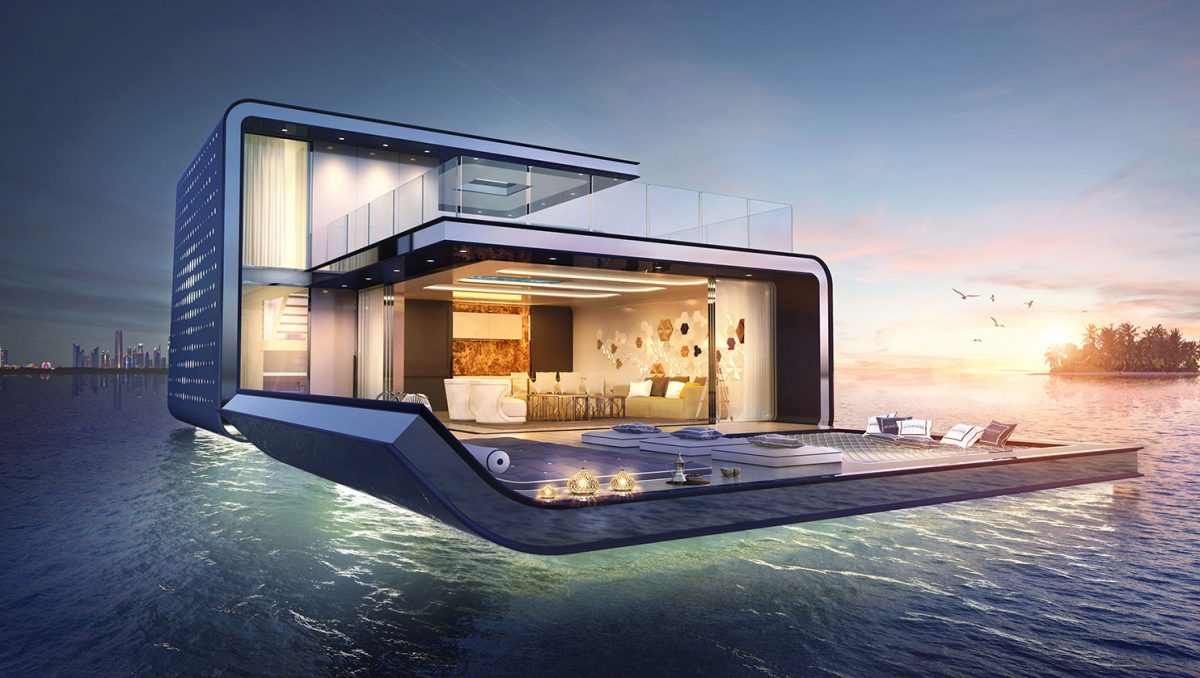Much has been made about the floating boat-homes by Kleindienst Group that were first announced in 2015.
From being symbols of Dubai’s decadence or examples cited along with others in conversations about developer over promise, the Floating Seahorse ‘villas’ have never been far from controversy.
However, according to Kleindienst Group’s CEO Josef Kleindienst, his company the first deliveries of the Floating Seahorses this month will mark an end to the conversations about their viability.
“We will start delivering about eight per month until the end of the year,” he told Arabian Business. “By the end of the year we will have delivered 40.”
Controversies
The subject of wonder when they were initially announced, the Floating Seahorse homes extend the idea of waterfront living to literally having a home on the seas – the ‘basement’ is fully submerged with transparent windows allowing for panoramic views of marine life in the off the coast of Dubai.
However, a number of controversies have attempted to sink the project even before it was delivered.
One of the floating seahorses reportedly sank off the coast, near the Burj Al Arab, in January. Kleindienst, however, refutes the claim saying it was an event platform designed to look like a home and which shouldn’t have been brought out as far from shoreline as it had been when it sank.
Controversy has also swirled around which authority in Dubai the structures are bound by regulation to – Real Estate Regulatory Authority or the Dubai Maritime Authority?
At least one investor has also claimed that he was sold the land which the Floating Seahorses are anchored to but that it remains under question whether that is something Kleindienst is legally under rights to do.
However, Kleindienst insisted that the floating seahorse structures follow legally sound contracts. If anything, they just might not be homes in their strictest definition.
“We have been requested not to call the Floating Seahorses ‘villas’. A villa is by definition fixed to the ground and cannot be moved without breaking it. The nature of the floating seahorse is to be able to move it around without breaking it,” he said.
_1.jpg?9NAQFA1Y) Kleindienst Group’s CEO Josef Kleindienst
Kleindienst Group’s CEO Josef Kleindienst
Instead, the floating seahorse is now sold without a title or deed to the land underneath the structure.
“Whatever you see here is owned by us, not on a lease, but a freehold title deed. And we are allowed to subdivide the land on our own discretion and sell it, provided we follow development control regulations, law of municipalities, directives from the land department and so on,” Kleindienst added before going on to explain what had happened with the original contracts for the floating seahorses.
“When we started to sell them, we sold them as a combination of vessel and land. But there was a lot of confusion about whether it was a land or villa. So then we had to change the strategy and we do not sell the land anymore just the right to use the location for the lifetime of the structure.”
This means that there are a few Floating Seahorses sold under the original contracts that do include rights to the land underneath the structures. Kleindienst acknowledged that this was a lesson he and the company had to learn.
“Yes it was. Those who bought it with the land, and there are less than 10 such contracts, have a much better value at the end of the day. To be honest I’m happy to give them the land, I still think it’s a good model. But it was agreed to not provide contracts this way,” he said.









